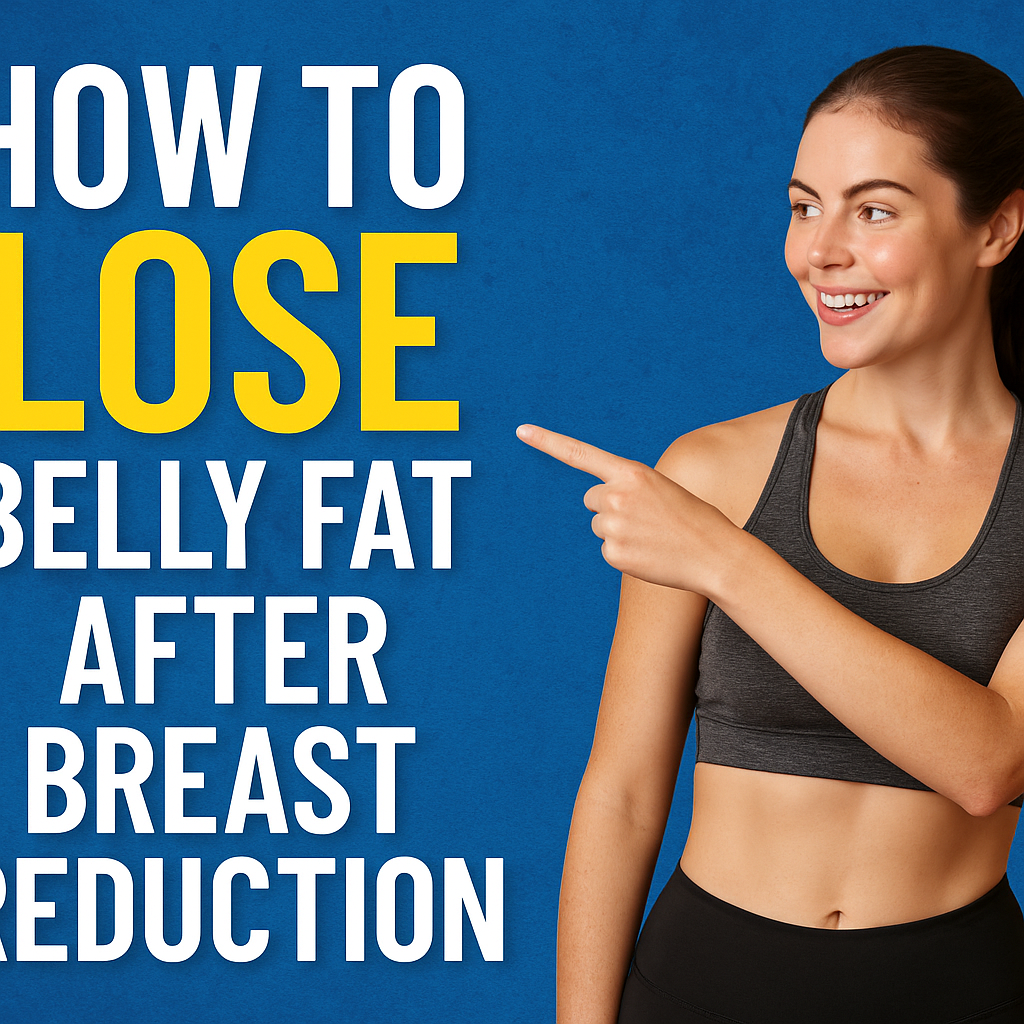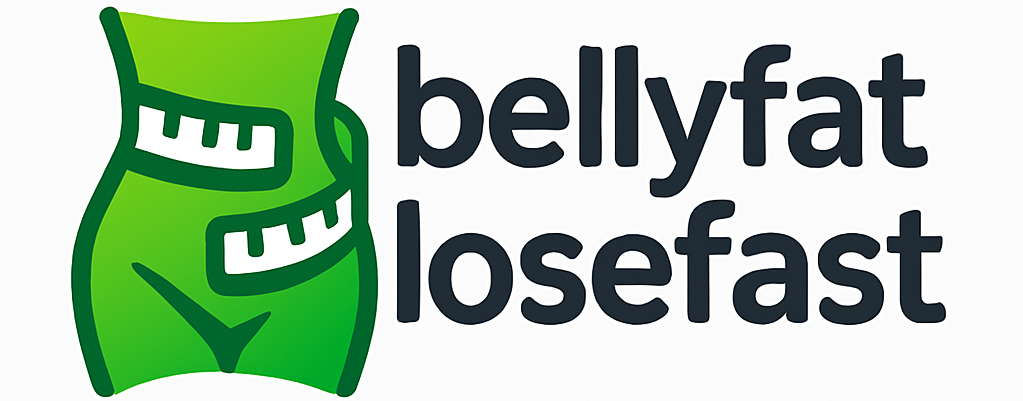How to Lose Belly Fat after Breast Reduction is a procedure that helps reduce the size and weight of large breasts by removing excess fat, tissue, and skin. It’s often done to ease physical discomfort like back, neck, or shoulder pain, and to help people feel more comfortable and confident in their bodies.

Tips to Lose Belly Fat After Breast Reduction Surgery
1. Allow Time for Recovery First (Exercise)
Let’s be honest most of us have heard that regular exercise can help reduce belly fat. But what often gets overlooked is how tough it can be to even start exercising when you’re dealing with the physical strain of large breasts. Before breast reduction surgery, many women find activities like running or high-impact workouts incredibly uncomfortable or even painful. That kind of discomfort can make staying active feel impossible.
If you’re new to exercise or just getting back into it after surgery, go easy on yourself. Start slow, listen to your body, and gradually build up to more challenging movements.
How to Lose Belly Fat after Breast Reduction Keep in mind that while exercise doesn’t target fat loss in just one area (like your belly), it can help you lose weight overall including around your midsection as your body becomes stronger and healthier.
A great place to start is with gentle cardio think brisk walking, cycling, or swimming. These are easier on the joints and chest area, while still helping to burn calories and build endurance.
- Running
- Stair climbing machine
- Spin classes
- High-intensity interval training (HIIT)
- Row machine
- Cross trainer machine
Lose Belly Fat after Breast Reduction | Exercise Timetable
Here’s a beginner-friendly weekly exercise timetable using the workouts you mentioned, designed for someone easing into fitness especially after breast reduction or dealing with previous discomfort from large breasts. It balances cardio, intensity, and rest to build endurance without overwhelming your body.
Beginner Cardio Workout Timetable (Weekly Plan)
🗓️ Week 1–2: Foundation Phase
| Day | Workout | Duration | Notes |
|---|---|---|---|
| Monday | Brisk Walking or Light Jogging | 20–30 mins | Wear supportive sports bra; go at your pace |
| Tuesday | Rest or Light Stretching | — | Focus on recovery |
| Wednesday | Stair Climbing Machine | 15–20 mins | Start slow, low resistance |
| Thursday | Cross Trainer (Elliptical) | 20 mins | Low to moderate resistance |
| Friday | Rest | — | Optional: gentle yoga or mobility work |
| Saturday | Spin Class (Beginner) | 30 mins | Stay seated if needed, adjust resistance |
| Sunday | Row Machine | 15–20 mins | Focus on form, not speed |
🗓️ Week 3–4: Progress Phase (Add Intensity)
| Day | Workout | Duration | Notes |
|---|---|---|---|
| Monday | Light Jog + Walk Intervals | 30 mins | Alternate 2 min jog / 2 min walk |
| Tuesday | HIIT (Low-Impact) | 20 mins | Try 30 sec effort / 90 sec rest, 5 rounds |
| Wednesday | Rest | — | Use massage ball or foam roll sore spots |
| Thursday | Spin Class | 30–40 mins | Include short standing climbs if comfortable |
| Friday | Cross Trainer Machine | 25 mins | Moderate resistance |
| Saturday | HIIT or Stair Climbing Machine | 20 mins | Keep intervals short, focus on effort |
| Sunday | Rest or Walk Outdoors | 30 mins | Recovery walk + light stretching |
💡 Tips:
- Support is key: Invest in a high-impact sports bra for comfort.
- Listen to your body: Don’t push through sharp pain or chest strain.
- Hydrate and fuel: Especially important with cardio and HIIT.
2.Stay Hydrated (Focus on a Clean, Calorie-Conscious Diet )

After breast reduction surgery, one of the most common issues people face is not drinking enough water. Staying well-hydrated is really important because it helps your body heal properly and can lower the risk of complications.
Try to drink plenty of water throughout the day, and be mindful of how much caffeine or sports drinks you’re having those can actually make your body hold on to water, which isn’t helpful for recovery.
The British Nutrition Foundation recommends 6–8 glasses a day (around 1.2 litres), but after surgery, it’s a good idea to drink a little more to give your body the extra support it needs while healing.
Of course! Here are some easy-to-follow, friendly tips to stay hydrated and eat clean, calorie-conscious meals especially helpful after breast reduction surgery.
💧 Stay Hydrated – Simple Tips
- Drink water regularly, even if you’re not thirsty. Aim for a glass every 1–2 hours.
- Keep a water bottle with you at all times—it’s easier to sip throughout the day.
- Add natural flavor to water (like lemon, cucumber, or mint) if plain water feels boring.
- Limit caffeine and fizzy drinks—they can dehydrate you.
- Eat water-rich foods like watermelon, cucumber, and oranges for an extra hydration boost.
🥗 Eat Clean, Calorie-Conscious – Simple Tips
- Focus on whole foods: lean proteins, fresh fruits, veggies, and whole grains.
- Avoid processed snacks and fast food they often have hidden calories and salt.
- Watch your portions eat slowly and stop when you’re comfortably full.
- Choose healthy fats like avocado, nuts, and olive oil (in moderation).
- Limit sugar swap sweets for naturally sweet fruit when you can.
How To Lose Lower Belly Fat Female Fast
3.Increasing your step count
After breast reduction surgery, heavy gym workouts are off the table for a while—but that doesn’t mean you have to stay stuck in bed.
Walking is a gentle, safe way to help your body heal and feel better, without putting too much strain on you.
While it’s important to rest during the first couple of weeks (yes, this is your excuse to catch up on your Netflix list!), adding in short walks after that can really help your recovery.
Why Walking Helps After Surgery:
- Boosts blood flow – helps lower the risk of blood clots
- Prevents bed sores – keeps your skin and body from stiffening up
- Eases gas pain and bloating – gentle movement helps digestion
- Reduces constipation – moving helps things keep moving!
- Improves overall health – even a few walks a week can make a big difference
4.Eat a Balanced Diet
It might sound like a cliché, but it’s true eating a balanced diet after surgery can really help you feel better and even lose some belly fat over time.
When you hear “balanced diet,” you probably think of the usual:
fruits, veggies, and protein and yes, those are important!
But a balanced diet doesn’t mean cutting out all the foods you enjoy, like carbs, chocolate, or crisps.
It’s all about balance not perfection.
So yes, you can still enjoy your favorite treats just try to pair them with healthier choices most of the time. Think of it as nourishing your body while still enjoying life.
Key Parts of a Balanced Diet:
- Vegetables & Fruits
Packed with vitamins, minerals, and fiber. Try to eat different colors for the best variety. - Protein
Helps your body repair and stay strong. Good sources: chicken, fish, eggs, beans, tofu, and lentils. - Carbohydrates
Give you energy! Choose whole grains when you can: oats, brown rice, quinoa, whole grain bread. - Healthy Fats
Support your brain and help you absorb vitamins. Try avocados, nuts, seeds, and olive oil. - Water
Keeps your body hydrated and supports healing, especially after surgery. - Treats in Moderation
You don’t have to give up chocolate or crisps just enjoy them now and then alongside healthier meals.
5.Reduce your stress levels
How to Lose Belly Fat after Breast Reduction,It might sound a bit surprising, but trust us on this one!
When you’re stressed, your body releases a hormone called cortisol, which can make you crave more food. This can lead to eating more, which may increase belly fat.
This is known as “stress belly”, and it’s more common than you might think.
To help reduce belly fat, it’s important to lower stress levels. You can do this by adding relaxing activities to your routine, like:
- Reading
- Meditation
- Yoga
Prioritize Sleep and Stress Management
- Poor sleep and stress can lead to belly fat.
- Aim for 7–8 hours of good sleep each night.
- Stress raises cortisol, which can cause weight gain.
- Try meditation, journaling, or light stretching to relax.
- Managing stress and sleep can help reduce belly fat.
Is a Breast Reduction Safe
Yes, breast reduction surgery is generally safe when performed by a qualified surgeon. Like any surgery, it carries some risks, but complications are rare. It’s important to follow pre- and post-surgery instructions for the best outcome.

